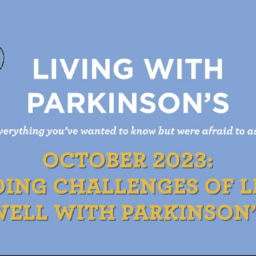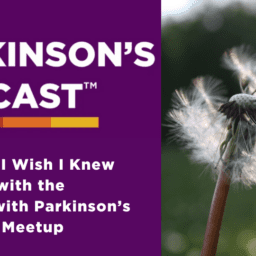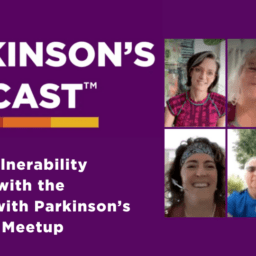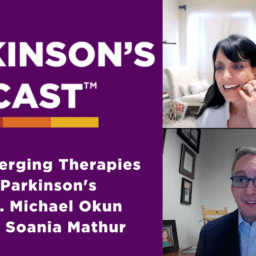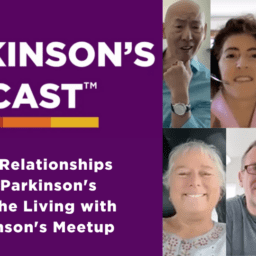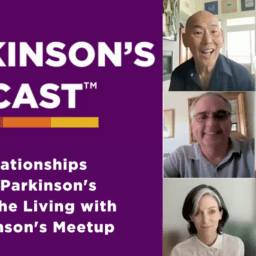Whether it’s a post-holiday funk, the shorter and darker days or challenging weather, winter can exacerbate the feelings of loneliness and isolation sometimes experienced by people who live with Parkinson’s. Sound familiar? If so, try these four mood-boosters to get your groove back.
Mood Booster #1: Get Moving
Besides its potential to reduce physical and cognitive symptoms of Parkinson’s, exercise can alleviate stress and anxiety, and increase feelings of wellbeing and self-confidence. As a bonus, regular exercise can also help you fall asleep more quickly, sleep more deeply and awaken less often during the night.
For maximum benefit, engage in a mix of activities that are aerobic (e.g. cycling, dancing, boxing or swimming) and non-aerobic (e.g. weights, resistance bands, tai chi, Pilates or yoga). Whatever your choice, aim for activities that you enjoy—you’ll be more likely to stick with them and make exercise a habit.
Learn More About Exercising with Parkinson’s:
Move it! Exercise and Physical Activity are Key to Living Well with Parkinson’s
Mood Booster #2: Go Outside
According to the World Health Organization, getting just 15 minutes a day of natural sunlight can reduce stress and anxiety and may help you sleep better at night. While you’re out there, score bonus points by exercising (see above) or recruiting a friend to come along (read on)!

Mood Booster #3: Socialize
Research has shown that building social connections improves mental health. Consider joining a Parkinson’s support group or signing up for a class at your local library or recreation center. Maintaining existing relationships also promotes emotional wellness; so, if you’re shy about making new connections, start by inviting a friend to the movies, to a museum or to your home for coffee. Sound like too much today? Even just calling a friend or family member can help lift your mood.
Learn More About Socializing with Parkinson’s:
Tips for More Expressive Communication for People with Parkinson’s
Mood Booster #4: Connect, Learn and Share What You Know
Support groups—such as those for people living with Parkinson’s—can be excellent sources of comfort and moral support (as well as practical advice). Participants are sometimes surprised by the additional psychological and emotional benefits they experience by providing support to others with Parkinson’s.
To find online communities or groups in your area, ask your doctor/doctor’s office for a recommendations or check listings on websites of local, state and national Parkinson’s organizations. Be patient since it can take some time to find the right fit. Or, consider starting your own support group, as Davis Phinney Foundation Ambassadors Michelle Lane, Brian Reedy and Rich Wildau have done.
By being proactive, open-minded and willing to try something new, you can combat the winter blues to live well with Parkinson’s.
If feelings of sadness last more than two weeks and are accompanied by symptoms such as insomnia or trouble concentrating, that may be a sign of clinical depression, which you should report to your doctor.
Learn More About Depression and Parkinson’s:
Can You Identify Your Depression Triggers?
LEARN MORE ABOUT LIVING WELL WITH PARKINSON’S
Our Every Victory Counts® manual gives people living with Parkinson’s, their care partners and their family members the tools they need to take control of their own Parkinson’s treatment through a proactive approach to self-care.
It’s jam-packed with up-to-date information about everything Parkinson’s, plus an expanded worksheets and resources section to help you put what you’ve learned into action. Color coding and engaging graphics help guide you through the written material and point you to complementary videos, podcasts and other materials on the Every Victory Counts companion website. And, it is still free of charge thanks to the generosity of our sponsors.
Request your copy of the new Every Victory Counts manual by clicking the button below.










